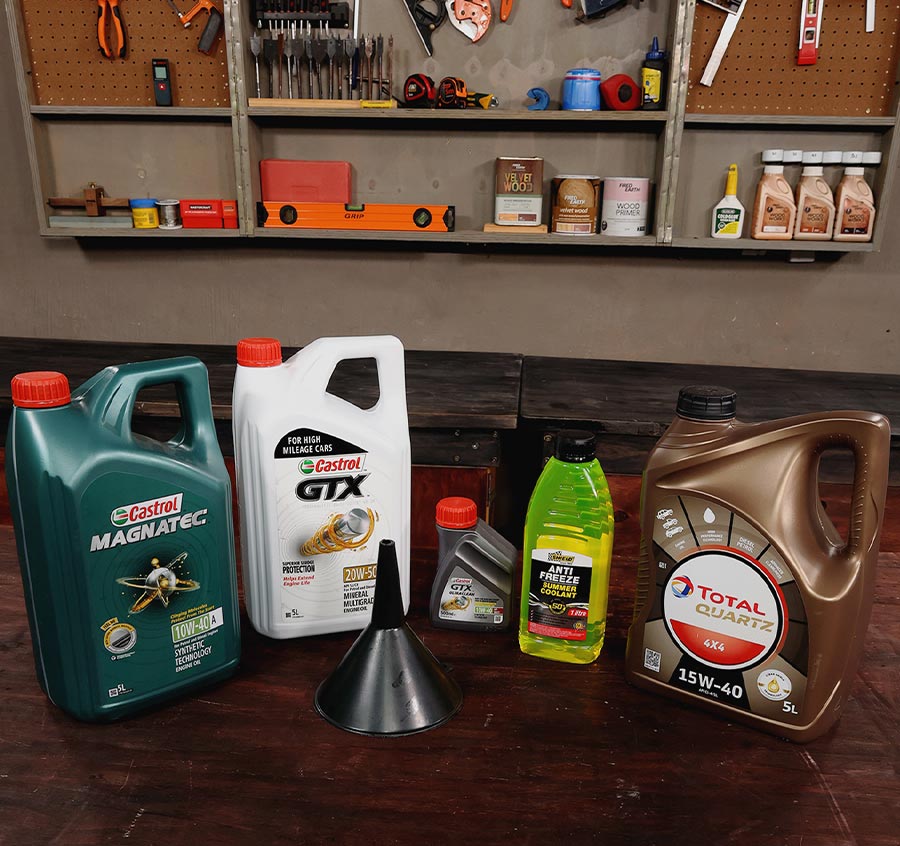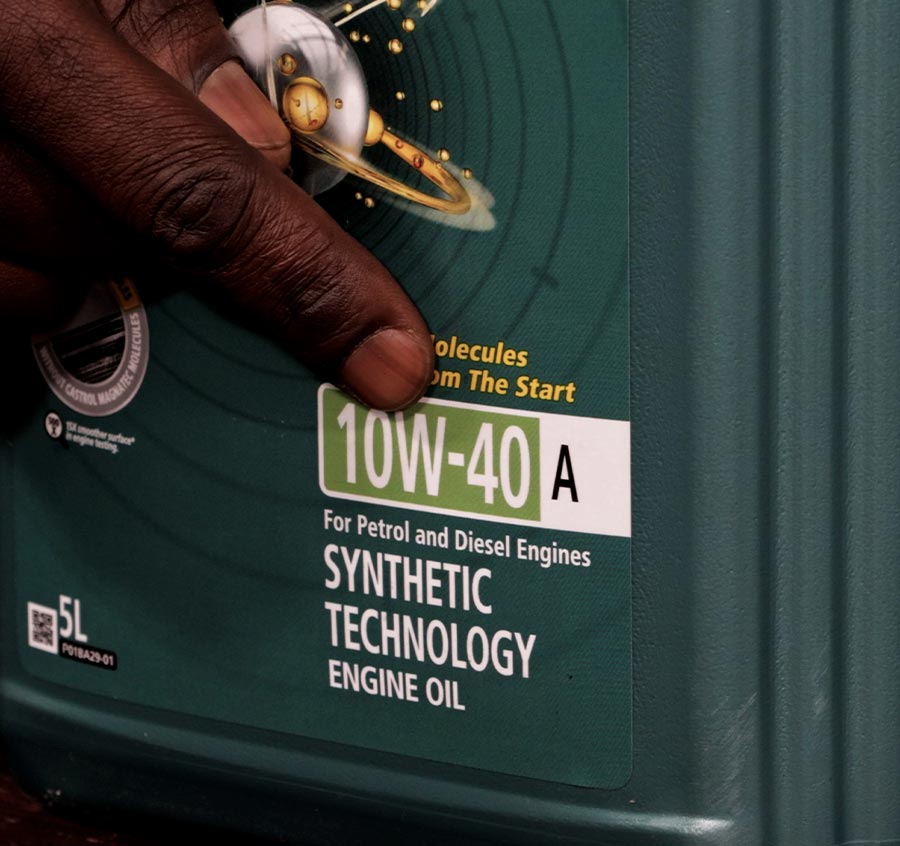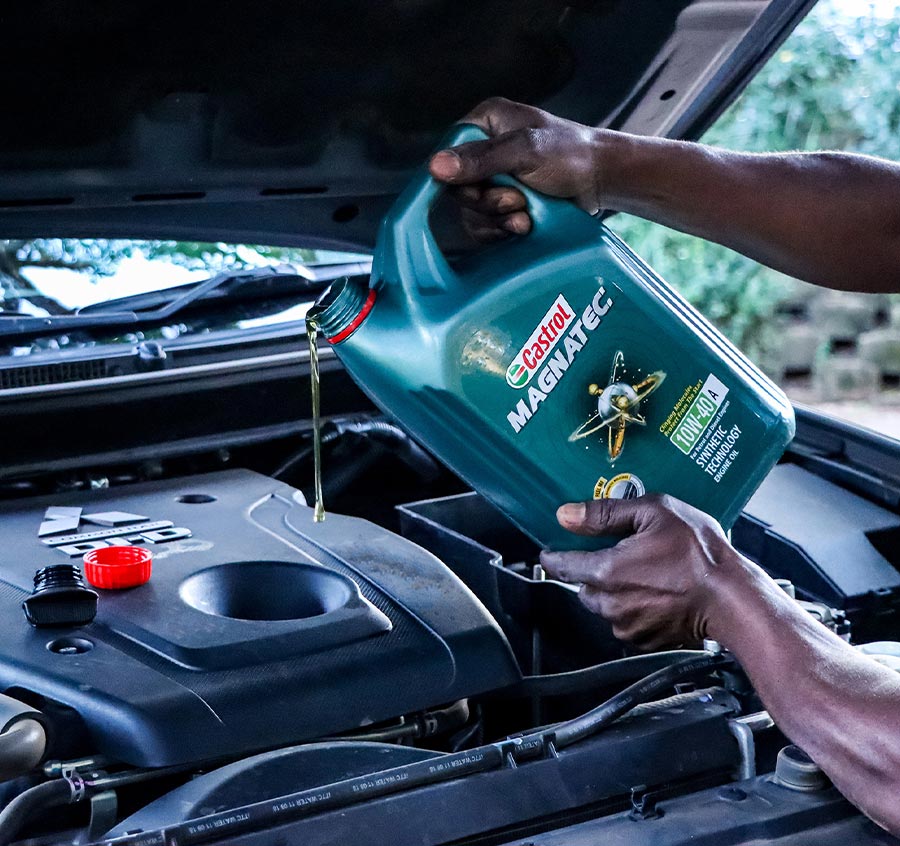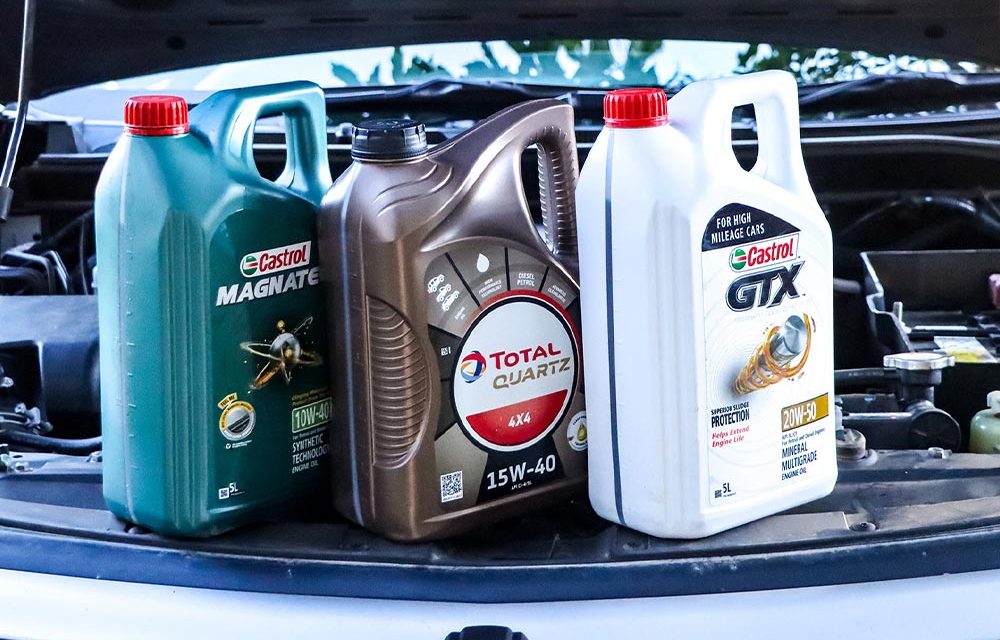If we ever remember to top up our car’s engine oil, we usually just ask for a bottle of ‘multigrade’, but what do those mysterious numbers on the bottle mean and what should we be asking for?

But engine oil is confusing – have you seen the bottle, with all its numbers? Let’s investigate what those numbers mean and get to grips with more important information about engine oil.
When it comes to selecting the right oil for your vehicle (or lawnmower!), it’s important to understand the various classifications available. Oils can be categorised into two main types: mineral oils, derived from crude oil, and synthetic oils, which are ‘man-made’. Additionally, there are monograde and multigrade oils, each serving different purposes and offering distinct benefits.

Within both mineral and synthetic oils, there are further classifications based on viscosity (how runny the oil is). The numbers on the oil bottle indicate the viscosity, with the lower the number the better the oil will flow. This means that a 10W-40 oil will flow more easily than a 20W-50 oil during start-up and normal engine operation. These numbers are standardised by the Society of Automotive Engineers (SAE). Because thin, low viscosity oils flow more easily, they offer better engine protection at low temperatures, such as during cold starts when engine wear is at its worst.

Multigrade oils, on the other hand, offer a more versatile solution. They carry two numbers, such as 10W-40 or 20W-50, indicating their viscosity characteristics at both cold and hot temperatures. The ‘W’ stands for ‘winter’, indicating the oil’s performance when it is cold. Multigrade oils excel in maintaining their optimum performance across a wider temperature range, encompassing both normal engine operating temperatures and cold start conditions.

To do this, park the car on a level surface with the engine cold. Begin by removing the dipstick, wiping it clean and then reinserting and removing it once again. The dipstick will have markings indicating the minimum and maximum oil levels. If you find the oil level to be on the low side, simply remove the oil cap and gradually add oil. It’s better to add oil slowly, checking the level and repeating the process multiple times, rather than overfilling it. If you’re uncertain about the appropriate oil type or how to refill, refer to your owner’s handbook or consult with your mechanic or our friend Google.
While you’re working in the engine bay, remember to check the level of the coolant in your radiator reservoir and top it up with the correct antifreeze. If you have pure water in the radiator, you run the risk of rupturing the radiator if it freezes. Antifreeze is exactly that – it lowers the freezing point so the liquid remains so.
Remember that Builders stocks a range of car engine oils and vehicle accessories, available both in-store and online at Builders.co.za.











